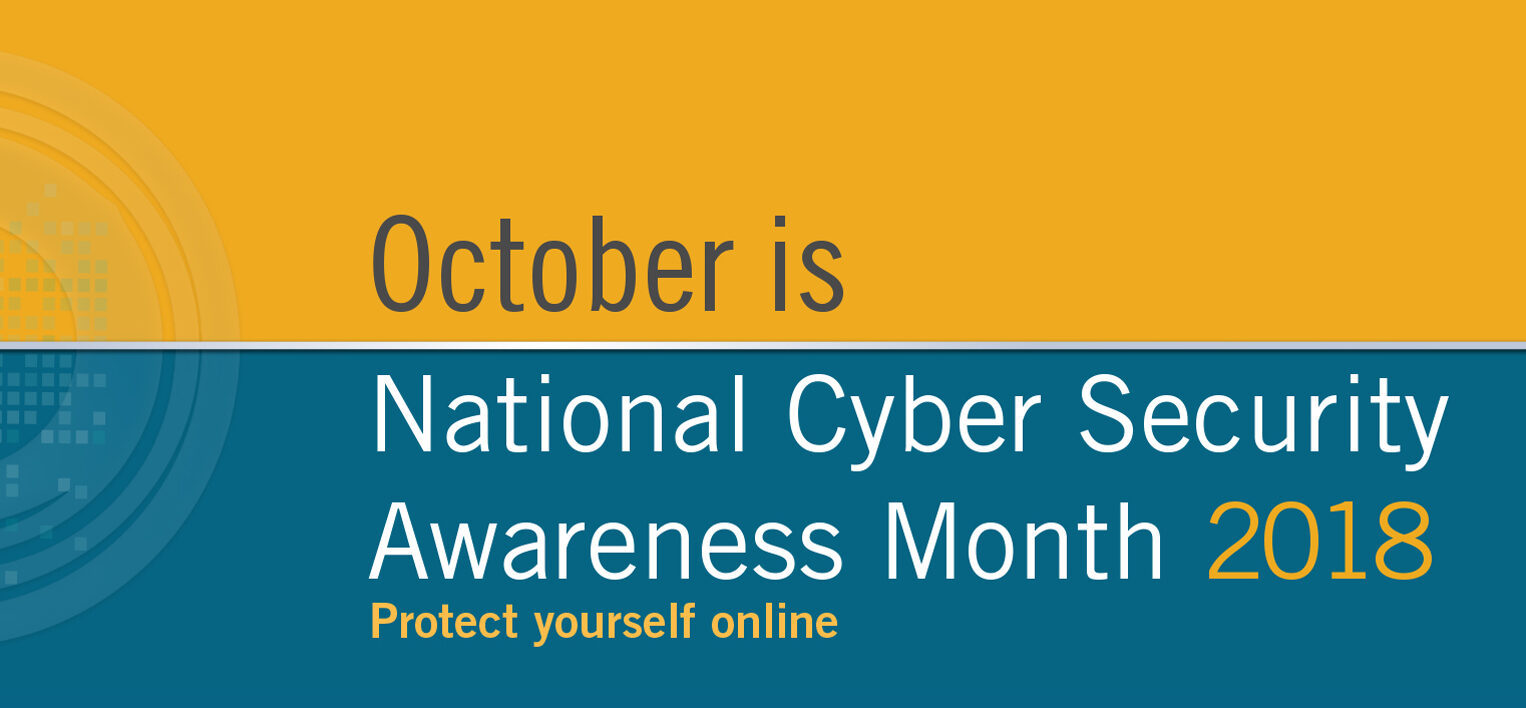WELCOME TO NATIONAL CYBER SECURITY AWARENESS MONTH 2018!
Don’t forget your computers, tablets, the previously mentioned smart phones, and other network-connected devices. These should all be kept up to date. Both Windows and macOS offer automatic update procedures, as does Linux, if that is your cup of tea. Tablets, such as those from Amazon and other manufacturers have automatic updates enabled by default in most cases. Don’t neglect to allow them to update. For your smartphones, you are usually at the mercy of the wireless carrier, such as Verizon or AT&T for updates, so when they come out, make sure to update them quickly.
And remember, in all online activity, remember to Stop, Think, then Connect.
- STOP – Check to make sure all defenses are in place. For example, your system is up to date, your anti-virus is up to date and running, etc.
- THINK – Think about the consequences of your action and behaviors. Is this a phishing email, or have you actually won a lottery you didn’t buy a ticket for, or is this really a Nigerian prince who wants your help? Should you post that picture from the party last night, or should that poor decision simply be forgotten?
- CONNECT – After considering your actions and verifying your defenses, connect and enjoy the Internet.
Of course, we realize that you spend most of your year here with us at Berry, living in residence halls,townhouses and cottages. Be good citizens of this environment by turning the wireless networking off on your wireless printers, limiting the use of Bluetooth devices, and surfing responsibly. All of the previous recommendations about updates still apply while living on campus.
Finally, students, check out the free KnowBe4 security awareness training available in your MyApps portal – http://myapps.berry.edu
Thanks for reading, I hope you read next week’s as well!

